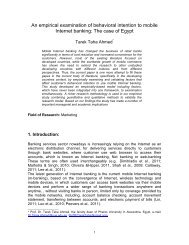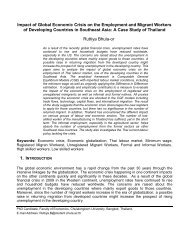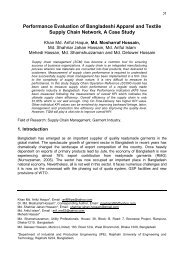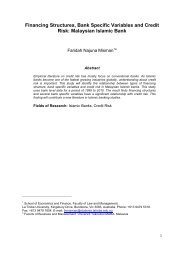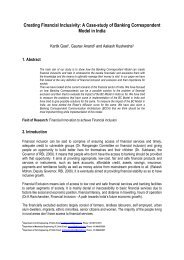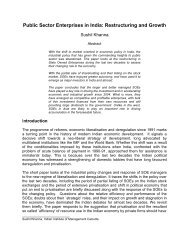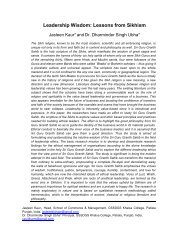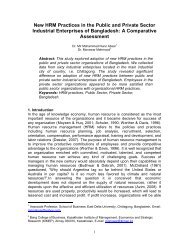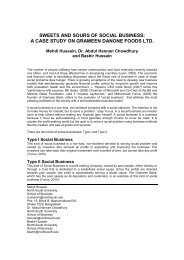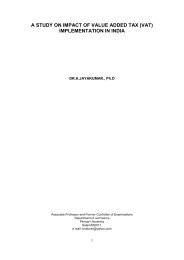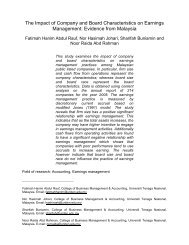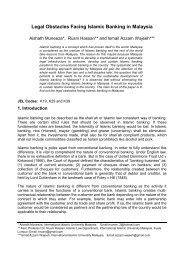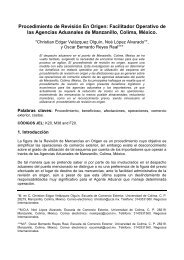The Impact Of Reward And Recognition Programs On Employee's ...
The Impact Of Reward And Recognition Programs On Employee's ...
The Impact Of Reward And Recognition Programs On Employee's ...
Create successful ePaper yourself
Turn your PDF publications into a flip-book with our unique Google optimized e-Paper software.
esponsive to business needs. At a minimum, employees expect theirorganization to provide fair pay, safe working conditions, and fair treatment.(Beer, Spector, Lawrence, Mills, & Walton, 1984).Traditionally most reward and recognition programmes were vague and oftengiven in response to a manager’s perception of when an employee performedexceptionally well. <strong>The</strong>re were usually no set standards by which exceptionalperformance could be measured, and it could have meant anything fromhaving a good attitude, assisting another department, or being consistentlypunctual. In current organizational settings this is no longer the case, asorganizations understand the great gains derived by linking rewards andrecognition to their business strategy (Flynn, 1998)2. Literature Review<strong>The</strong>re is a large body of literature, including research literature, on rewardsand recognition programmes. Many of the studies focus on the effects ofrewards on task interest and performance and are found in the literatureconcerned with motivation: both intrinsic and extrinsic motivation. Inintrinsically motivated behavior there is no reward except with the task itself.<strong>Reward</strong> and recognition programmes come within the discussion onextrinsically motivated behavior that occurs when an activity is rewarded byincentives not inherent in the task (Deci, 1971).Many contemporary authors have also defined the concept of motivation.Motivation has been defined as: the psychological process that givesbehavior purpose and direction (Kreitner, 1995); a tendency to behave in apurposive method to achieve specific, unmet desires (Buford, Bedeian, &Lindner, 1995); an inner force to gratify an unsatisfied need (Higgins, 1994);and the will to accomplish (Bedeian, 1993). For this paper, motivation isoperationally defined as the inner force that drives individuals to achievepersonal and organizational goals. Understanding what motivates employeesis one of the key challenges for managers. Although it is not possible directlyto motivate others, it is nonetheless important to know how to influence whatothers are motivated to do, with the overall aim of having employees identifytheir own welfare with that of the organization (Bruce and Pepitone, 1999).In general terms rewards programmes come within the overall concept ofcompensation strategies which are defined as the “deliberate utilization of thepay system as an essential integrating mechanism through which the effortsof various sub-units or individuals are directed towards the achievement of anorganization’s strategic objectives” (Gomez-Mejia and Balkin, 1992). <strong>The</strong>y aremanagement tools that hopefully contribute to a firm's effectiveness byinfluencing individual or group behavior (Lawler and Cohen, 1992). Allbusinesses use pay, promotion, bonuses or other types of rewards toencourage high levels of performance (Cameron and Pierce, 1977).



